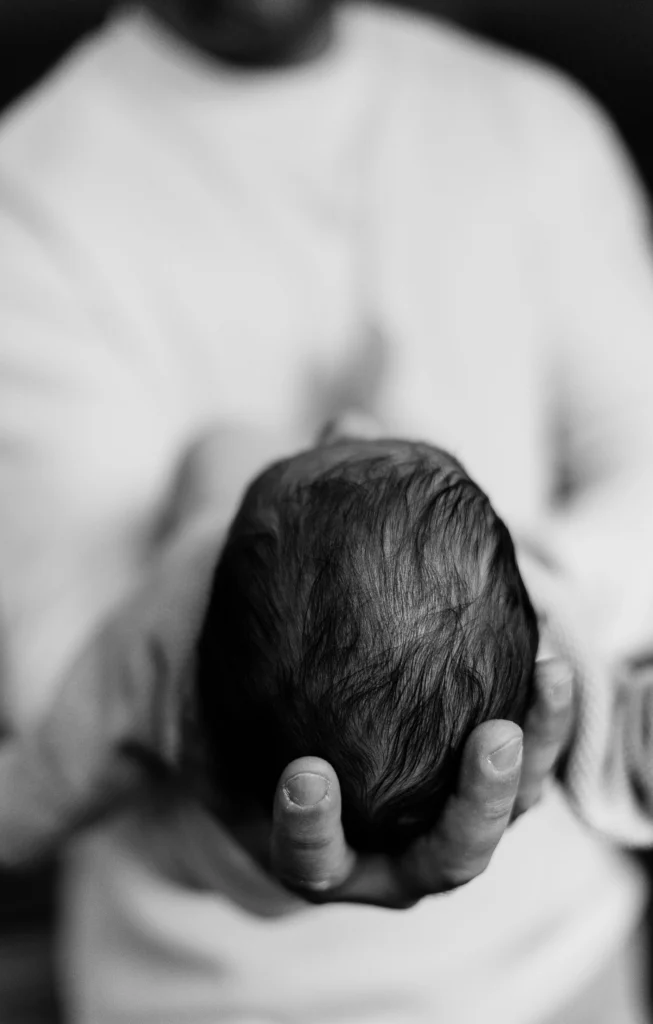Stress Relief
A Husband’s Guide to Postpartum Depression: How to Help Your Wife Heal and Feel Supported

25/07/2025
What Husbands Need to Know About Postpartum Depression Of New Mothers
Welcoming a baby into your family is one of life’s most beautiful moments. It brings joy, pride, and new responsibilities — but it can also bring unexpected challenges. One of the most misunderstood challenges new mothers face is postpartum depression (PPD).
At bloomhappymind.com, we believe that husbands and partners play a crucial role in helping mothers cope with postpartum depression and feel supported every step of the way. This guide will help you understand what postpartum depression is, how it affects your wife, and how you can truly help her heal.
The greatest discovery of my generation is that a human being can alter his life by altering his attitudes.
William James
Psychologist
What Is Postpartum Depression?
Postpartum depression is a serious mental health condition that can affect women after childbirth. Unlike the common “baby blues,” which typically fade within two weeks, PPD can last for months if untreated. It can make new mothers feel deeply sad, anxious, overwhelmed, or detached from their baby — and it’s not their fault.
Understanding this is key: Postpartum depression is a medical condition, not a weakness. Your support and patience can make a huge difference in her recovery.
How Common Is Postpartum Depression?
Research shows that about 1 in 7 women experience postpartum depression. It’s more common than many people realize, yet it often goes undiagnosed because mothers may feel guilty or ashamed to admit how they feel.
What Causes Postpartum Depression?
There’s no single reason why postpartum depression happens, but several factors play a role:
✅ Hormonal changes: After childbirth, dramatic drops in estrogen and progesterone can trigger mood swings and depression.
✅ Emotional stress: Caring for a newborn is exhausting, especially with lack of sleep and major lifestyle changes.
✅ Previous mental health issues: Women with a history of anxiety or depression are at higher risk.
✅ Lack of support: Feeling isolated or overwhelmed can worsen symptoms.
Signs of Postpartum Depression: What Husbands Should Look For
It’s not always obvious when your wife is struggling with PPD. Here are some common signs to watch for:
She seems persistently sad, hopeless, or tearful.
She has trouble bonding with the baby.
She withdraws from family and friends.
She shows changes in appetite or sleep (beyond what’s normal with a newborn).
She says she feels like a “bad mother” or worthless.
She seems anxious, irritable, or unusually angry.
In severe cases, she talks about harming herself or the baby (seek emergency help immediately).
If these signs last more than two weeks, encourage her to speak with a doctor or mental health professional.
How Husbands Can Support a Wife with Postpartum Depression
Your love and understanding can make a world of difference. Here’s how you can help:
1. Educate Yourself
Take time to read about postpartum depression. Understanding what she’s going through will help you respond with empathy rather than frustration.
2. Listen Without Judgment
One of the best things you can do is simply listen. Let her share her feelings without interrupting or offering quick fixes. Sometimes she just needs you to hear her.
3. Encourage Professional Help
Gently encourage her to see a doctor or therapist. Offer to go with her to appointments if she wants. Sometimes, just knowing you’re there can ease her fears.
4. Help With the Baby
Don’t wait to be asked — step in. Change diapers, handle night feedings when you can, or rock the baby to sleep so she can rest.
5. Take Care of Daily Chores
Lighten her load at home. Help with cooking, cleaning, and errands. Small actions show big support.
6. Make Time for Her to Rest
Sleep deprivation can make PPD worse. Arrange times when she can nap undisturbed or sleep through the night while you handle the baby.
7. Watch for Signs of Crisis
If your wife ever talks about harming herself or the baby, seek help immediately. Call her doctor, a trusted family member, or emergency services. It’s critical to take these signs seriously.
8. Remind Her She’s Not Alone
Reassure her that you’re in this together. Remind her she’s not failing — she’s recovering from a real, treatable condition. Let her know you admire her strength.
How to Take Care of Yourself Too
Supporting your wife through postpartum depression can be emotionally heavy for you too. Here are a few things you should do for yourself:
✅ Talk to someone you trust — a friend, family member, or counselor.
✅ Take breaks to rest and recharge.
✅ Stay patient — recovery takes time.
✅ Avoid blaming yourself or your partner for this condition.
When you care for yourself, you’ll be better able to care for her and your baby.
When to Get Professional Help
Mild postpartum depression can sometimes improve with extra rest, good nutrition, and emotional support. But many mothers need professional help to fully recover — and that’s perfectly okay.
Therapy, support groups, and in some cases, medication can make a huge difference. Be her advocate when she doesn’t have the energy to advocate for herself.
Final Thoughts
At bloomhappymind.com, we know that bringing a new baby into the world is both beautiful and challenging. If your wife is struggling with postpartum depression, your support, patience, and love are some of the most powerful tools she has to heal.
Remember: You are not alone either. Reach out to family, friends, and professionals if you need help navigating this together. With the right support, recovery is not just possible — it’s likely.
If you found this guide helpful, please share it with another new dad or family who may need it. Let’s help every new mother — and every supportive partner — feel seen, heard, and cared for.

